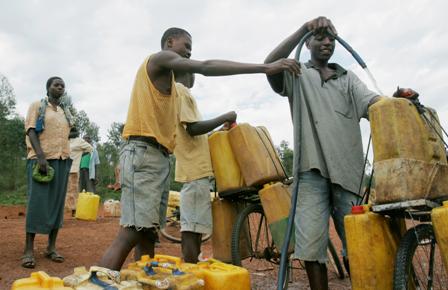
To close World Water Week in Stockholm last week, Scott M. Weber, Director-General of Interpeace, spoke about water and peacebuilding. Water is not only essential for life, but can also prove a source of tension which can erupt into violence.
Significance of water in our world
“We all look at water differently—some see it as a basic right, others as a basic commodity, and others as a political and financial resource. We need to understand this to know why people are fighting over it,” said Scott.
“Too often, where we need water we find guns” Ban Ki-Moon in an address to the World Economic Forum, 2008
Scott highlighted: “According to the World Water Organization, less than 1% of the global water supply is drinkable and readily accessible for human uses. Water scarcity can therefore act as a precondition for discontent and desperation, often resulting in violent conflict.”
Increasing water scarcity
Water is almost never cited as the direct cause of conflict, but disputes over distribution and access to adequate quantity and quality often exacerbate tensions. Additionally, water scarcity can lead to the loss of livelihoods in the agricultural sector, increasing economic competition and migration.
Water scarcity and global consumer demand are predicted to increase. By 2030, 47% of the world’s population will be living in areas of high water stress (OECD Environmental Outlook to 2030).
Possibilities for peace
Scott concluded: “Policies towards sustainable agricultural practices, governance and national self-sufficiency can contribute to reducing tensions and pressure on water resources.”